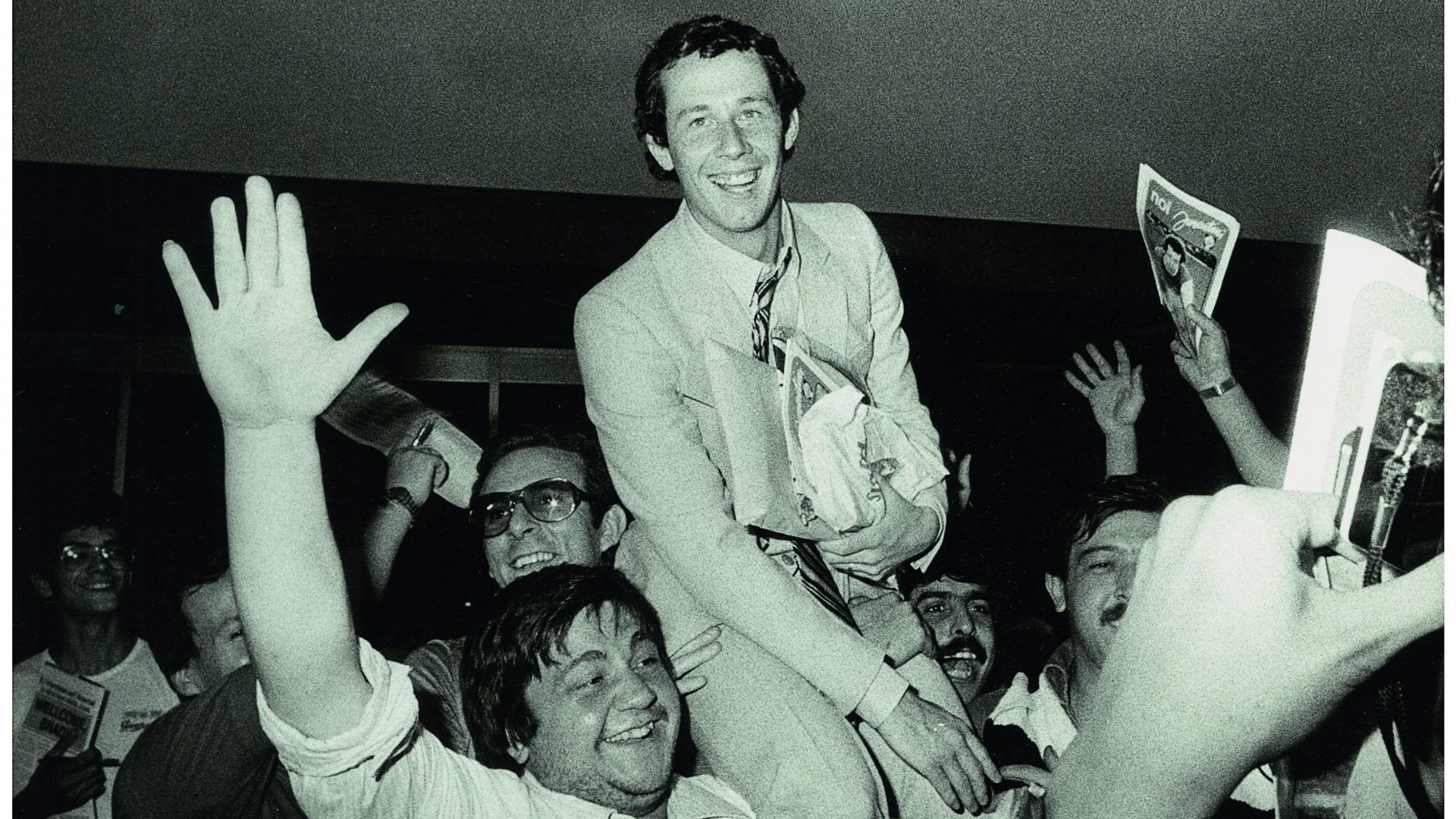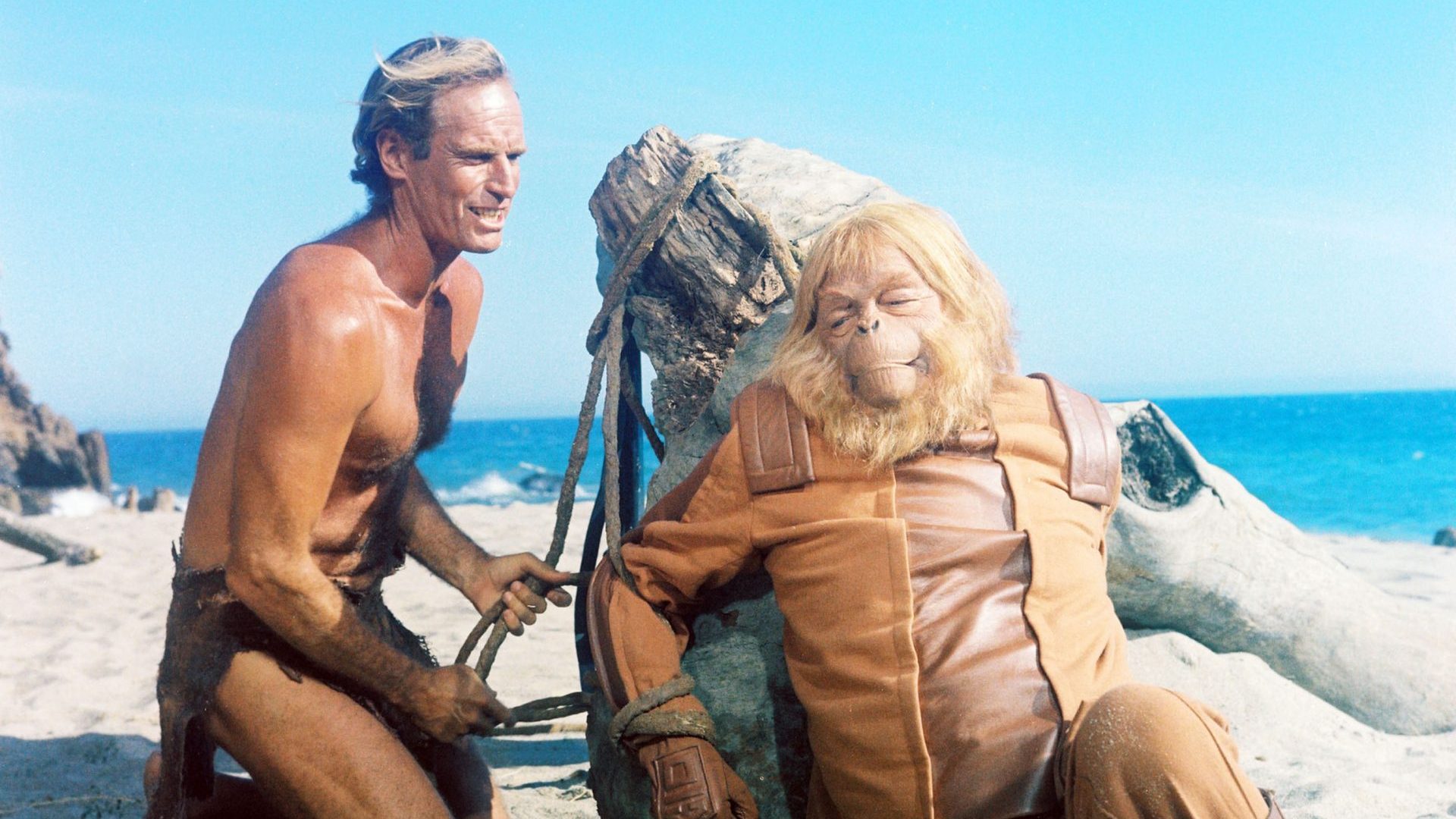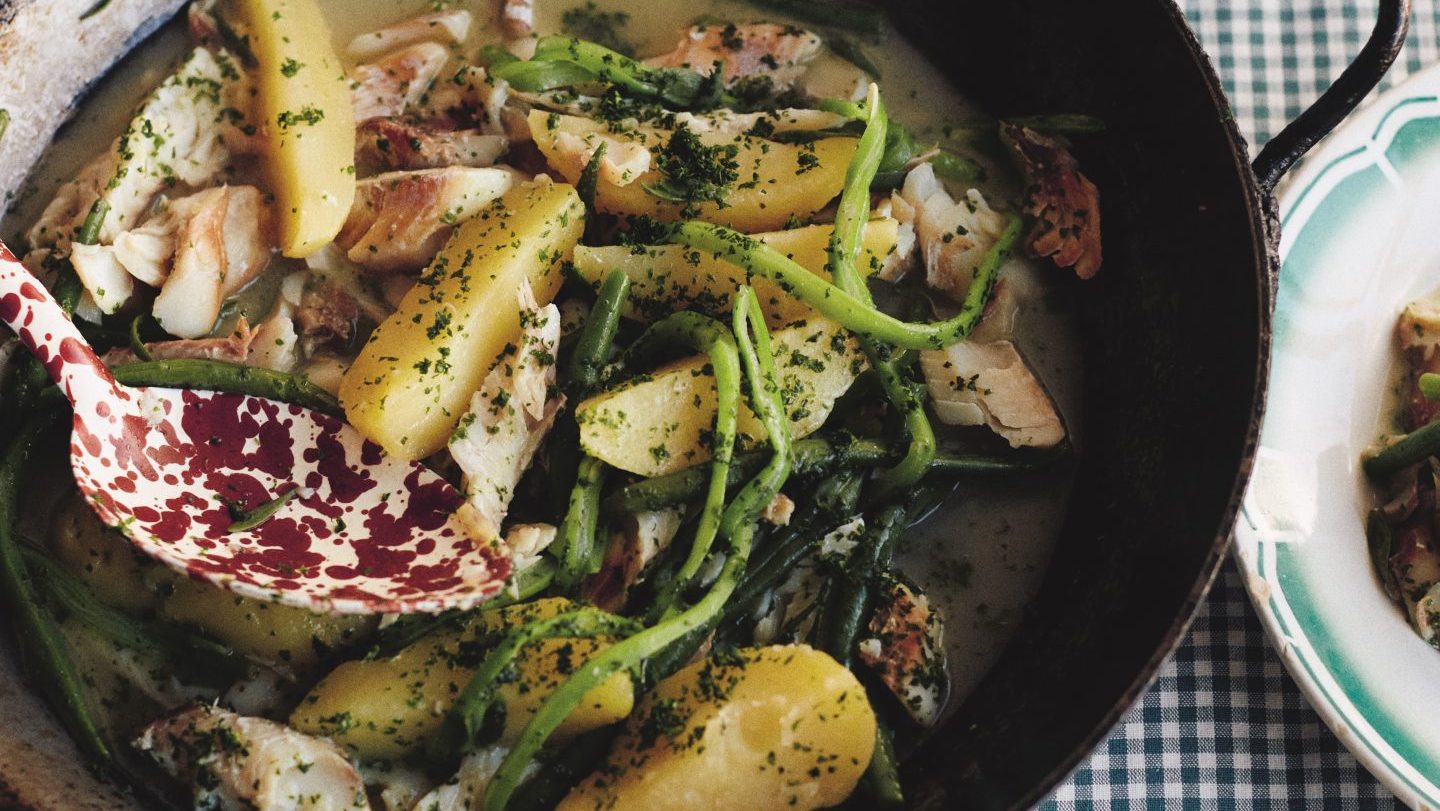Liam Brady calls it “a shameful blot on my copybook in Turin” and “cultural treason”. It was early in the 1980s and the Dubliner, now a success at Juventus after a pioneering move from Arsenal, received a phone call from the club president’s secretary.
In his engaging autobiography How To Be A Footballer, he recalls the conversation went like this: “Hello, Brady. Sorry to trouble you but the club is hosting a reception for Luciano Pavarotti this evening and we hoped you would like to join us.”
“Luciano who?”
“Pavarotti, the opera singer.”
“Oh, opera. No grazie.”
It was one of only a few missteps in a seven-year spell in Italy for Brady, an NME reader whose own musical heroes were Bob Dylan and Van Morrison. While he may not have been ready for Pavarotti – “blown by blissful ignorance”, he writes – he did act as an unofficial ambassador for Serie A, his success tempting the likes of Trevor Francis, Graeme Souness and Ray Wilkins to swap the blood and thunder of what was then English Division One for more sophisticated football and a different lifestyle in the sun.
When Brady’s Arsenal contract was up for renewal in 1980 and he told the club he fancied a move to a European team, Gunners secretary Ken Friar thought he had an ace up his sleeve. “But Liam, you’ll be going to a foreign country, with all the problems that will entail,” he recalls Friar saying. To which the Dubliner replied: “Mr Friar, I’ve done it once, I can do it again.”
A stylish, artistic figure in times when those were not the prized qualities for a footballer in England’s top flight, Brady had been spotted by an Arsenal scout in August 1969, playing for St Kevins Boys in the Irish capital. Aged 13, he was flown across the Irish Sea to north London for a trial match and he signed as an apprentice two years later.
In 1973, the year that both Ireland and Britain joined the European Economic Community, Brady made his Gunners debut and for the rest of the 1970s he was recognised as one of Division One’s brightest talents. In May 1979, his late solo charge in the FA Cup final set up the winning goal as Arsenal pipped Manchester United 3-2 at Wembley. That season, Brady was voted PFA Player of the Year.
But by the end of the following season, Brady was eager to broaden his horizons. Italy was his preferred destination, the country having recently lifted an embargo on foreign players that was introduced after their poor performance in the 1966 World Cup finals.
It did not go unnoticed, too, that one of Europe’s best players could be signed for a bargain fee. EEC regulations – a precursor of the Bosman ruling that changed football in 1995 – said that employees could move between member countries when their contracts were up as long as compensation was paid, and a formula was introduced for calculating how much based on a player’s age and salary. Had Brady moved to Manchester United or Nottingham Forest, he would have commanded a fee of around £1.5 million. In the end, Juventus only had to pay £500,000.
A club which venerated – and still does – its Welsh star of the 1950s, John Charles, greeted the signing with delirium. A thousand Juventus fans greeted Brady at the airport, when he arrived in Turin, in late July 1980, carrying him shoulder height through arrivals. “My state of mind was flipping from fear to excitement and back. It fully dawned on me, the size of this club and the level of expectation around it,” he writes.
Eventually, Brady was introduced to Giovanni Trapattoni. The Juventus coach drove the new star midfielder into the Alpine hills outside Turin, to a hotel in Villar Perosa, where he met his new teammates over a meal of spaghetti bolognese and veal milanese – for which Brady had been preparing by visiting an Italian restaurant in north London before his move.
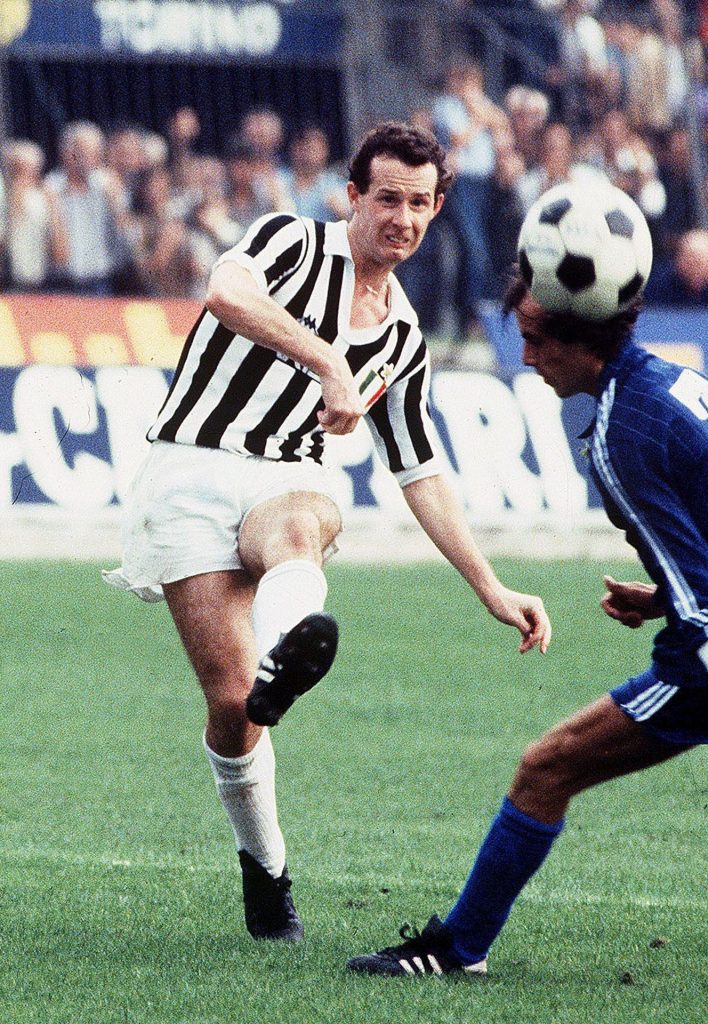
He remembers adjusting to the subtle cultural differences in Italy. At away games, the night before a match in the hotel, his teammates would hold court and gather in their silk pyjamas, smoking, to discuss tactics for the next day’s game. Unlike England, though, there was no hard-drinking culture.
Brady’s fitness immediately improved. He also admired the philosophy of football in Italy. In England the game was often played from back to front, with the ball up in the air. But in Italy this was considered sacrilegious. “The Italians believed you have to keep the ball on the floor and pass your way through the midfield with technique and style,” the 67-year-old told me. “It was harder to score goals in Italy, though, because the Italians see defending almost like an art form.”
Brady recalls the enthusiasm he had for learning Italian, which he became fluent in within a couple of years. “Me and my wife, Sarah, learned the language, which we didn’t find a chore, and made Italian friends too,” he says. Being the only foreign player at Juventus, Brady accepted he was under a microscope. The possibility of failure brought its own anxieties, he explains. “It took a few months for me to really play like I had potential to.” During that time, his newfound language skills enabled him to hear a Juve director exclaim on the team bus, “Fuck! Looks like we signed the wrong foreigner.”
But Brady persevered, learning to break Italian football’s rigid lines by dropping deep to receive the ball, then making surging runs at defenders. He won over the doubters with two goals – including a controversially awarded penalty – in a November visit by Inter Milan, the latest meeting in a bitter rivalry that Brady compares to Liverpool v Manchester United.
It would not be the only controversial decision of that season to go Juve’s way, and in his book he writes: “There is no escaping the rumours that surrounded Italian football in that era and beyond. Players and officials had been suspended for match-fixing, so there was often a cloud of suspicion. The bigger teams, including Juventus, did appear to enjoy more favourable treatment from referees, though the same could be said of all the top leagues.”
But, he continues, “Only once, later at Sampdoria, did anyone hint at anything dubious in my company, when a teammate asked if we might be content with a draw at the weekend. I told him to go away.”
Brady calls the Inter win “like a blood transfusion for our season. My form improved massively and I began to score goals regularly and contribute much more to the team. Before long, the narrative in the papers was all about how I’d got to grips with the Italian game.”
And by the end of the season, Juvents were champions. They repeated the feat the next season too, Brady scoring the winning penalty against Catanzaro.
It seemed like a bright future lay ahead of him in Turin. But Gianni Agnelli had other ideas. The Fiat president, Juventus owner, and international playboy signed Saint-Étienne midfielder and French captain, Michel Platini. Brady suddenly found himself as a liability and was let go.
“I was very disappointed when they decided to sign Michel Platini. It felt like a punch in the guts initially,” Brady told me. “But Gianni Agnelli ultimately got the decision right: Platini was a better player than me.” In his autobiography, he writes, “when I was working on this book, I found an old diary where I had scribbled some thoughts during that season. There’s a telling entry from February 1982: ‘Watched Italy play France in Paris. Platini was brilliant. Agnelli was there’.”
Genoese club Sampdoria had just been promoted to Serie A when Brady signed for them in 1982. “The two seasons there were among the best of my career,” he says. The club had a family atmosphere and went out of their way to ensure Brady’s domestic needs were taken care of. They arranged an apartment in a beautiful villa in Nervi, facing onto the bay, with a garden full of palm and lemon trees running right down to the Mediterranean. Brady also became a good friend, and translator, to his new teammate, the late Francis, who arrived from Manchester City.
Aged 28, Brady signed for Inter Milan. He envisioned the move would enable him to compete at the top tier of Italian football again. He looks back at his two seasons there with regret and disappointment, though. “The culture of the club was wrong,” he says. “I also sensed that the fans never quite warmed to me like the supporters at my other clubs.”
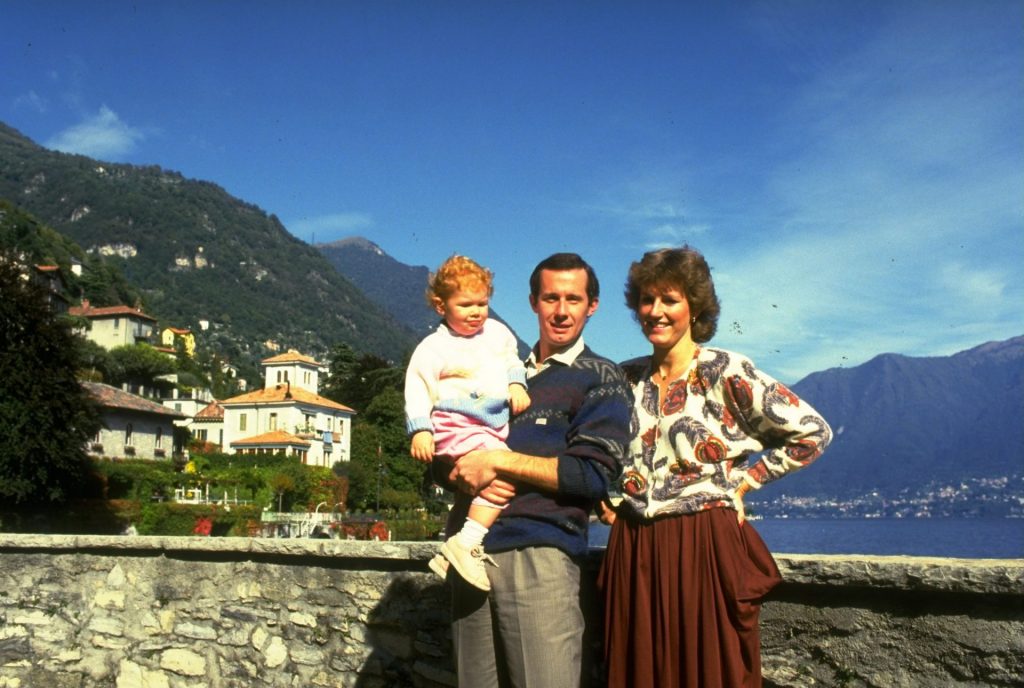
One memorable incident summed up a side of the Italian game that Brady himself did not warm to; in his autobiography he writes that when team-mate Giuseppe Bergomi was hit by a coin in a UEFA Cup match at Real Madrid, another player urged the team’s doctor to “‘cut him, cut him’, urging the team doctor to slice his head open to make the injury look worse, so we could go to the referee and have the game called off. I couldn’t believe it. But it was something in a lot of the Italian lads’ makeup, a readiness to take advantage. Whether that was of a missile from the crowd or an outstretched leg in the box.”
Brady’s last season in Serie A was at Ascoli, a small provincial club based on the east coast of central Italy. He went there for the money. “My wallet overruled my brain,” he admits. But it was a bad move financially. In October 1986, after Ascoli lost 5-0 at home to Juventus, Costantino Rozzi, the club owner and president threatened to stop the players’ wages immediately until results improved. Brady told Rozzi he wanted a free transfer, and he would go to the Italian Federation if he wasn’t allowed to leave on his terms. After just 17 appearances, Brady returned to England and signed for West Ham in 1987.
He recalls how there was a great atmosphere in the dressing room at the Hammers. But after Italy, the greasy spoon cuisine in east London felt like a downgrade. The meal a day before a game was “sausage, egg, chips and beans in the club canteen,” he explains. He also noticed how brutal and aggressive the game had become in England during his seven years away.
“During the 1980s managers like Graham Taylor, Howard Wilkinson, and Jack Charlton sent football down a very crude route in England,” he told me. He came to have a grudging respect for Charlton, who became his international manager when he accepted the Republic of Ireland job in 1986. Brady played in the qualifiers leading up to the 1988 UEFA European Football Championship in West Germany, the first major tournament Ireland ever qualified for. But Brady missed the competition through injury. “It’s probably the biggest regret of my career that I did not play at the highest level on the international stage for Ireland,” he says.
He might have gone back to Italy to play in the Italia 90 World Cup finals, but by then Brady’s international career had ended in controversy after Charlton substituted him during his 71st cap, after 35 minutes, in a friendly against West Germany, in Dublin, in September 1989. “I felt that was unnecessary and we had a shouting match in the dressing room at half-time, where a number of players had to come between us,” Brady remembers. “Jack was a very stubborn guy. It was only his way or the highway. But maybe that is part of being a good manager.”
Yet after spells in management with Celtic and Brighton, there was one more successful brush with the European way of doing things for Brady. He rejoined his old club as head of youth development in 1996— the same season that Arsène Wenger came on board as manager. “We have to think worldwide, I recall Wenger saying,” says Brady. “It was a message that transformed Arsenal.”
Brady says the Frenchman modernised English football. “Wenger brought things into the English game that Alex Ferguson then started to emulate and copy,” he says. “Like how players should be looking after themselves better, with their diet the way they train, and the exclusion of alcohol.”
Brady spent 20 more seasons at the club he describes as almost like an extended family, during which English football embraced European techniques and emerged as the continent’s dominant league. It was a journey that Brady himself had already made.
He says that while he finished his formal education in Dublin aged 15, football “has taught me much more about life than a classroom ever could,” he says. “The game has taken me everywhere— Europe, the Middle East, Asia, Africa, North America and South America and I’ve taken many different cultures and histories,” Brady concludes. “Football really has been my education.”
Born to be a Footballer by Liam Brady is published by Eriu

